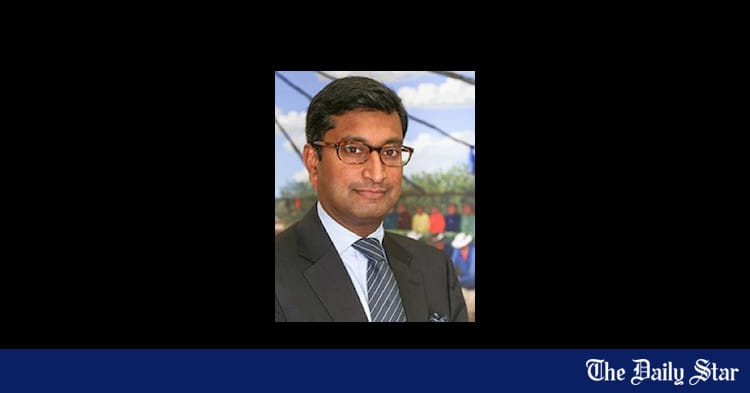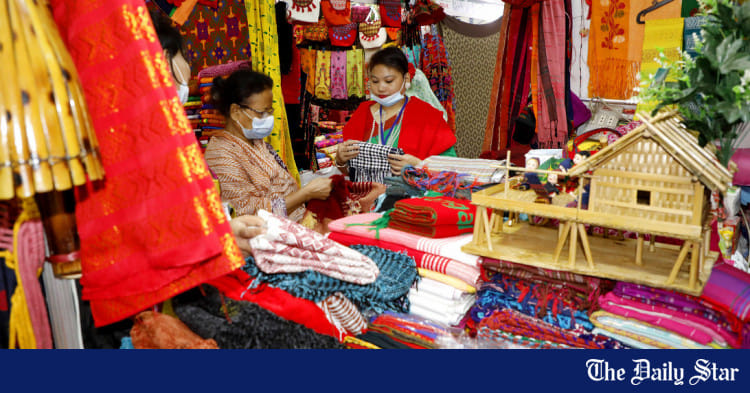Saif
Senior Member
- Joined
- Jan 24, 2024
- Messages
- 16,880
- Likes
- 8,153
- Nation

- Residence

- Axis Group


Bangladesh could be a regional trade hub
Bangladesh could become a regional hub for trade and investment in the wake of ongoing geopolitical tensions and growing focus on the Indo-Pacific region, according to Paul J Thoppil, Canada’s trade representative for the Indo-Pacific.
Bangladesh could be a regional trade hub
Says Canadian trade representative

Paul J Thoppil
Bangladesh could become a regional hub for trade and investment in the wake of ongoing geopolitical tensions and growing focus on the Indo-Pacific region, according to Paul J Thoppil, Canada's trade representative for the Indo-Pacific.
However, the country would need to sign Foreign Investment Protection Agreements (FIPAs) in order to encourage foreign direct investment (FDI) to this end, he said.
A FIPA is an international treaty between two countries that imposes rules on how foreign investors from either side can be treated while doing business with the other, thereby protecting their interests.
Most countries have taken advantage of the huge low-cost labour force in China, Thoppil said.
"But given geopolitical tensions, a lot of foreign multinationals are considering adopting a combined China Plus One policy," he added.
China Plus One refers to a global business strategy where companies avoid investing only in China and opt for a more diverse portfolio featuring a variety of ASEAN countries.
Bangladesh has the opportunity to benefit from this strategy amid the changing global supply chain thanks to its low-cost and educated labour force, Thoppil said.
"I would like Bangladesh to leverage this attribute as demonstrated in the country's garments sector to increase trade and investment with Canada and other parts of the North American market," he added.
Thoppil made these comments in an exclusive interview with The Daily Star on May 21 during a three-day visit to Dhaka, where he held meetings with top government officials to promote bilateral trade and investment.
He said he observed vibrancy in the economy, confidence in the private sector, good infrastructure and a youthful population.
In fact, Bangladesh's economic progress in the past two decades has been so fast that it was not well observed by the outside world, he said.
"I think we should send the Canadian private sector a signal that Bangladesh is a fantastic place for investment as it could be a hub for exports to India, China and neighbouring countries," he said.
To read the rest of the news, please click on the link above.
Says Canadian trade representative
Paul J Thoppil
Bangladesh could become a regional hub for trade and investment in the wake of ongoing geopolitical tensions and growing focus on the Indo-Pacific region, according to Paul J Thoppil, Canada's trade representative for the Indo-Pacific.
However, the country would need to sign Foreign Investment Protection Agreements (FIPAs) in order to encourage foreign direct investment (FDI) to this end, he said.
A FIPA is an international treaty between two countries that imposes rules on how foreign investors from either side can be treated while doing business with the other, thereby protecting their interests.
Most countries have taken advantage of the huge low-cost labour force in China, Thoppil said.
"But given geopolitical tensions, a lot of foreign multinationals are considering adopting a combined China Plus One policy," he added.
China Plus One refers to a global business strategy where companies avoid investing only in China and opt for a more diverse portfolio featuring a variety of ASEAN countries.
Bangladesh has the opportunity to benefit from this strategy amid the changing global supply chain thanks to its low-cost and educated labour force, Thoppil said.
"I would like Bangladesh to leverage this attribute as demonstrated in the country's garments sector to increase trade and investment with Canada and other parts of the North American market," he added.
Thoppil made these comments in an exclusive interview with The Daily Star on May 21 during a three-day visit to Dhaka, where he held meetings with top government officials to promote bilateral trade and investment.
He said he observed vibrancy in the economy, confidence in the private sector, good infrastructure and a youthful population.
In fact, Bangladesh's economic progress in the past two decades has been so fast that it was not well observed by the outside world, he said.
"I think we should send the Canadian private sector a signal that Bangladesh is a fantastic place for investment as it could be a hub for exports to India, China and neighbouring countries," he said.
To read the rest of the news, please click on the link above.





